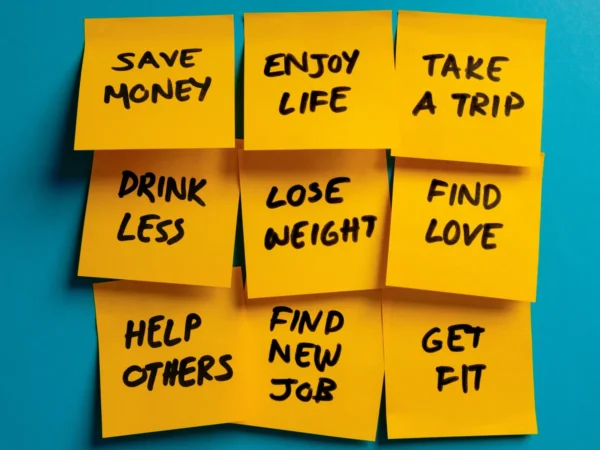
Assertiveness in Business: Tips from Confident Business Women

Assertiveness is a skill regularly mentioned by entrepreneurs who started with nothing and achieved a significant business success. But, what is it really? Assertiveness has numerous definitions, depending on the person you’re talking to, but it is primarily used to define one’s skill or ability to stand up for themselves in a positive and non-aggressive manner. The key to every woman’s success is confidence when doing your job and communicating or collaborating with others. Being a female entrepreneur isn’t easy so we bring you tips from confident and successful businesswomen.
1. Sheryl Sandberg, chief operating officer of Facebook
Sheryl Sandberg isn’t a founder of some business that turned out to be successful, but you can learn a lot from her. As a woman in technology, which is largely dominated by men, Sheryl Sandberg can teach you a thing or two about communication. In order to be assertive and confident, communication is the key and according to Sandberg the best way to make it happen is to accept different opinions. You may not agree with someone, but it doesn’t mean it should be the end of your partnership.
“I learned that effective communication starts with the understanding that there is MY point of view, (my truth), and someone else’s point of view (his truth). Rarely is there one absolute truth, so people who believe that they speak THE truth are very silencing of others. When we realize and recognize that we can see things only from our own perspective, we can share our views in a non-threatening way. Statements of opinion are always more constructive in the first person “I” form. The ability to listen is as important as the ability to speak. Miscommunication is always a two-way street.”
(Lean In: Women, Work, and the Will to Lead, Sheryl Sandberg)
Related: Why we have too few women leaders
2. Michelle Garcia, owner of Heirloom Catering
One of the most common mistakes that female entrepreneurs make is thinking you can do everything on your own. According to Michelle Garcia, founder of successful catering company Heirloom Catering, you should never be afraid to ask someone for help.
In fact, establishing strong relationships with other people and collaborating with them can make you more confident. It gives you the sense of control, you can ask someone for help, see what they have to say and decide whether it could work for you or not.
Ms. Garcia sees assertiveness in business as being free and confident to ask for help. We are led to believe that asking for help is a sign of weakness, which is incorrect. Being brave to ask for help shows you’re willing to learn and succeed. That’s what makes you powerful!
“You’re always going to find yourself at a roadblock, whether it’s learning about a sales tax, developing a new website, or creating a new marketing plan. Always just ask for help. It’s so simple and it sounds so trite but it’s true. People want to see a person be successful. The key to success is to help others succeed.”
Related: Ticket to Success Michelle Garcia, Heirloom Catering
3. Andi Atteberry, founder of Blingsting.com
Being a female entrepreneur isn’t easy, but it shouldn’t stop you from doing what you’ve always wanted. Andi Atteberry, founder of a website where you girls and women can buy feminine first aid kits and pepper sprays, says she doesn’t even waste her energy on thinking whether she’s somehow in an unprivileged position because of her gender.
“I don’t put any energy into wondering if I have different challenges than any other leader or business owner because I am female. I think at the end of the day, if you are good at what you do, that’s all that matters.”
4. Kelsey Ramsden, founder of SparkPlay etc.
Kelsey Ramsden is a founder of four companies (yes, four!) and Canada’s top female entrepreneur two years in a row (2012 and 2013). Kelsey would like you to know that assertiveness in business starts with you. In order to be confident and assertive with others, you have to know yourself first including your strengths and weaknesses.
“Wise entrepreneurs have the ability to look at themselves with unbiased judgment. When they see warts and shortcomings, they make a move to improve themselves. Be honest with yourself in a way where you’re very realistic about what you’re capable of.”
Related: Entrepreneur & Business Powerhouse Keynote Speaker Kelsey Ramsden
5. Patti Stanger, founder of Millionaires Club International
You probably know Patti from Millionaire Matchmaker show, you may love or loathe her, but it is impossible to deny a fact she’s a savvy businesswoman. Stanger advises women who are about to start their own business to walk to the beat of their own drum. That’s a major confidence boost!
To improve your communication skills and become more assertive, start relying on your intuition and always follow through. Stand your own ground, know what you want and go for it. No mind games, but honesty. To get what you want, you have to say it clearly. Your intuition is also important when you’re thinking about partnering up with some other person or business.
“If you plan on taking on a partner, follow the three C’s rule, which also applies to finding a mate: communication, compatibility, and chemistry…for without that, your venture won’t succeed.”
6. Alana Grimes, founder of College Papers
Alana Grimes, a woman with a powerful position in her niche. Being a talented writer and experienced educator she founded College Papers through the links that have been established over many years. She says that little things like showing interest in someone’s family can mean a lot. To become memorable you have to show you care. As a result, it is easier to communicate with people and make a career success by building bridges, instead of burning them down.
“Don’t hesitate to reach out to build relationships. Just send an email or private message via socials after new useful acquaintances. Be hyperaware – remarkably to every detail. Congratulate people on the important landmarks like Birthday or somebody’s anniversary. People love it. Be sincere and others will appreciate your efforts. This is a great way to connect with people and make yourself more memorable.”
Conclusion
When it comes to assertiveness at work, better communication skills, and building confidence, one thing is for sure – there are no quick fixes. What you can learn from these six examples is to know your value, ask for help when necessary, listen to your intuition, and accept other person’s point of view. Focus on your goals and work towards achieving them. Every progress, regardless of how big or small, adds to your confidence. And as a result, confidence helps you communicate better and become more assertive. Good luck! You can do it!













































